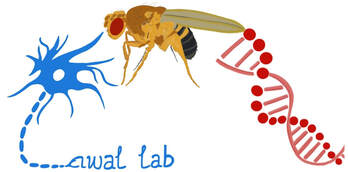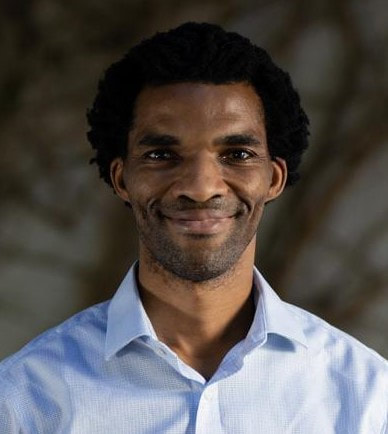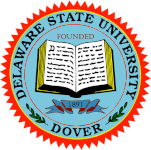Welcome to the Lawal Neuroscience Research Lab!Our lab comprises a diverse set of individuals who are working together to answer fundamental questions in neuroscience. We combine molecular, behavioral, genetic and electrophysiological approaches to understand both the mechanisms underyling synaptic neurotransmission and the etiology of neurological disorders such as Parkinson's disease. We invite you to explore our website, and to reach out to us with any questions or comments!
Our Big Picture
To foster scientific discovery through the creation of a diverse, friendly and intellectually rigorous space that equips members with the resources they need to reach their highest potential. |
|
HIGHLIGHTS
|
|
RECENT PUBLICATIONS
White, D., de Sousa Abreu R.P., Blake, A., Murphy, J., Showell, S., Kitamoto, T., Lawal, H.O. 2020. Deficits in the vesicular acetylcholine transporter alter lifespan and behavior in adult Drosophila melanogaster. Neurochem Int. [Epub ahead of print] PMID: 32315665
Showell, S.S., Martinez, Y., Gondolfo, S., Boppana, S., Lawal, H.O. 2020. Overexpression of the vesicular acetylcholine transporter disrupts cognitive performance and causes age-dependent locomotion decline in Drosophila. Mol Cell Neurosci. [Epub ahead of print] PMID: 32217162.
Deshpande, S.A., Freyberg, Z., Lawal, H.O., Krantz, D.E. 2020. Vesicular neurotransmitter transporters in Drosophila melanogaster. Biochim Biophys Acta Biomembr. [Epub ahead of print] PMID: 32305263
White, D., de Sousa Abreu R.P., Blake, A., Murphy, J., Showell, S., Kitamoto, T., Lawal, H.O. 2020. Deficits in the vesicular acetylcholine transporter alter lifespan and behavior in adult Drosophila melanogaster. Neurochem Int. [Epub ahead of print] PMID: 32315665
Showell, S.S., Martinez, Y., Gondolfo, S., Boppana, S., Lawal, H.O. 2020. Overexpression of the vesicular acetylcholine transporter disrupts cognitive performance and causes age-dependent locomotion decline in Drosophila. Mol Cell Neurosci. [Epub ahead of print] PMID: 32217162.
Deshpande, S.A., Freyberg, Z., Lawal, H.O., Krantz, D.E. 2020. Vesicular neurotransmitter transporters in Drosophila melanogaster. Biochim Biophys Acta Biomembr. [Epub ahead of print] PMID: 32305263
More geeky stuff
The Vesicular Acetylcholine Transporter and Synaptic Release
The vesicular acetylcholine transporter mediates the packaging and transport of the acetylcholine for exocytotic release. Below is a schematic of the predicted 12-transmembrane domain structure of that protein.
VAChT is expressed in the Mushroom Body the learning and memory center of the fly brain. VAChT is strongly expressed in Kenyon Cells (KCs) of the mushroom body. For details, see Lawal et al. 2017.
Drosophila models of Sporadic PD. Drosophila presents a very useful and convenient model to study the effect of environmental toxins on dopaminergic neuron and thus a useful way to measure the potential toxicity induced by environmental risk factors. For details, see Lawal et al. 2010].
The Vesicular Acetylcholine Transporter and Synaptic Release
The vesicular acetylcholine transporter mediates the packaging and transport of the acetylcholine for exocytotic release. Below is a schematic of the predicted 12-transmembrane domain structure of that protein.
VAChT is expressed in the Mushroom Body the learning and memory center of the fly brain. VAChT is strongly expressed in Kenyon Cells (KCs) of the mushroom body. For details, see Lawal et al. 2017.
Drosophila models of Sporadic PD. Drosophila presents a very useful and convenient model to study the effect of environmental toxins on dopaminergic neuron and thus a useful way to measure the potential toxicity induced by environmental risk factors. For details, see Lawal et al. 2010].


